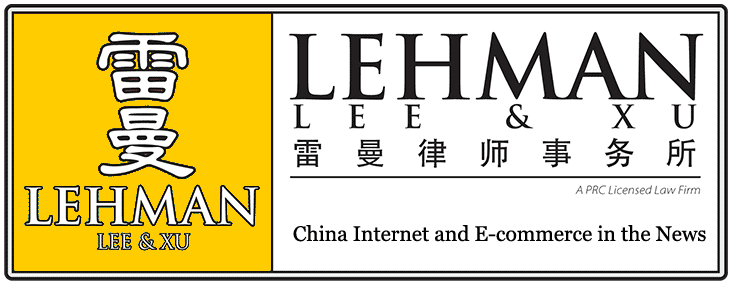BEIJING-The Chinese government is proposing to regulate a murky corporate structure that has allowed China’s Internet giants to court foreign shareholders. The move could effectively ease a much-flouted ban on foreign investment in sensitive industries.
Under new draft rules issued this week, Beijing appears to be giving tacit approval to the billions of dollars foreigners have invested via that structure in off-limit sectors-primarily the Internet and education. The structure, known as a variable interest entity, or VIE, is used by companies like e-commerce giant Alibaba Group Holding Ltd. and video-streaming company Youku Tudou Inc. It lets foreigners invest indirectly in companies in banned industries without taking a direct stake.
The workaround has been crucial to many of China’s biggest companies: Without it, Alibaba’s $US25 billion initial public offering last year on the New York Stock Exchange wouldn’t have been possible.
Devised by financial advisers in the late 1990s, VIEs get around restrictions on foreign investment by setting up two entities, one based in China and one abroad. The Chinese entity holds the permits and licenses that foreigners aren’t allowed to own but that are required to do business in China.
The second entity is an offshore holding company in which foreigners can buy shares. The holding company doesn’t own the VIE, which is often controlled by its top executives.
Instead, contractual agreements bind the companies, allowing profits to flow through to the foreign investors.
The draft rules from the Ministry of Commerce, part of wider investment reforms in the Chinese economy, will ensure that control of China’s overseas-listed Internet giants remain in Chinese hands. Under the new rules, officials will assess whether ultimate control of the VIE actually resides with the foreign investors, despite the foreign investors’ efforts to avoid direct ownership. It is likely that most companies won’t be affected by changed rules, since they are still controlled by Chinese nationals.
With the focus of the regulator shifting to the nationality of the people who control a company, rather than the origin of its shareholders, the new rules could be the first step toward allowing foreigners to invest in restricted Chinese companies directly, said Zhang Ning, senior counsel at law firm O’Melveny & Myers LLP.
Analysts say the changes potentially bring peace of mind to foreign investors concerned that Beijing might crack down on the workaround structure and vigorously enforce the ban on foreign investment.
The Commerce Ministry didn’t explain in detail how new VIE rules would be implemented.
Still, it is uncertain whether companies where the founders have sold a majority stake to foreign shareholders, or where the founders themselves are no longer Chinese nationals, will face restructuring.
“The right to define who is or who is not the actual controller [of a company] will fall with officials,” said You Yunting, partner of DeBund Law Offices, adding he expects Beijing to allow a period of adjustment. “I don’t believe the Chinese government wants to bring about earthshaking changes to the industry and those companies.”
A spokesman for Youku Tudou declined to comment. A spokeswoman for Alibaba said the company will comply with all relevant regulations. A Baidu Inc. spokesman had no immediate comment.
Despite VIEs being used to openly circumvent China’s rules, the government has long declined to move against them, adding a degree of risk for investors unsure of whether Beijing would one day reassert its investment restrictions.
The structure has also drawn criticism from some corporate-governance experts who argue that it gives foreign investors little control over key assets of the company. In response to concerns from the U.S. Securities and Exchange Commission, in recent years Chinese companies listing in the U.S. have disclosed increasingly detailed explanations of how their VIEs work.
In a 2011 dispute that propelled the problems of VIEs into the spotlight, the individuals who controlled Alibaba’s Chinese entity split off the assets of an important payments unit and put them under the control of Alibaba founder Jack Ma -over the objections of Yahoo Inc., a major shareholder in the foreign entity.
http://www.couriermail.com.au/business/breaking-news/china-looking-to-ease-foreign-investment-rules-covering-internet-companies/story-fnn9c0gx-1227192901093?nk=d535a692007bd864ea525d67a8665854 |


